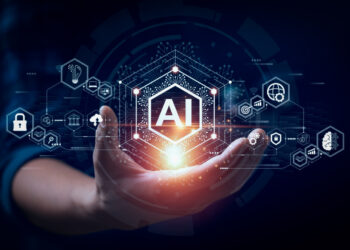Bruxelles – Without any doubt an opportunity, for sure a pitfalls-rich change. Certainties are there, incognita don’t lack. The European Commission cannot do a lot, the major part of the job will be up to the Member States, of course if they will be able to understand the ongoing evolving times and act on time. Here’s how the change over from the traditional labour market to the digital and technological one turns into a true political rebus, a brain teaser causing a head break for many in absence of proper measures aimed to adapt the society to a change as quick as unpredictable.
Artificial Intelligence (AI) will have consequences on society. “According to the latest OECD estimates, around 35%-40% of job places will be replaced, but the truth is nobody knows which will be the real impact”, EU commissioner Jyrki Katainen admitted today. He’s in charge of Growth and investments, but the Finnish member of the team Juncker is also responsable for jobs and competitivness. Addressing the audience of the Google and Debating Europe conference on the ‘Future of work’, Katainen made clear how the future of labour market is more unpredictable than ever.
It is already evident that requirements and above all skills will change due to automation and robotics. It has been foreseen that 21 million new jobs are expected to be created over the next 10 to 15 years, but it is unclear who will manage this transformation, neither how. “As we talk about skills, education is key”, pointed out the EU commissioner. “We cannot catch up skills with no education”. Here the main responsibility lies on national governments, Katainen recalled. “The European Commission role is limited, we have no power in education. What we can do is to raise pressure”.
Currently there are still huge differences among EU Member States. “There is a cultural problem” in Europe, recognised Katainen. “In certain countries education is less important than phisical infrastructure. Also the figure of teacher changes among Member States”. No explicited mentions were made, but looking at education and training indicators helps to understand how Italy is one of the most problematic country in this case. Katainen thus called on industries to lobby. “We need pressure from the stakeholders” in order to unlock those capital cities still not aware of the challenges posed by AI. “I’m not saying governments are stupid, there are just many problems and they see different priorities”.
What is at stake is not so irrelevant. On the contrary, it is estimated that new digitally-enabled automation and AI has the potential to bring an uplift in digital front-runner country GDP growth of about €550 billion, or about 1.2% per year from 2016-2030. Of course, there are still aspected to be clarified. “We are dealing with a power which is quitely unknown”, reiterated Katainen, who admitted to be “nervous” by the the fact that nobody knows which way the labour market is going. Perhaps AI “is alarming, but it has not to freeze us”. That means “we should be not too worried on impact and on how many jobs we will lose, we have to be focused in opportunities”. But opportunities can be seized or not, as well as side effects can be managed or not. Education and re-training “indeed are a cost”, Katainen pointed out. Who is going to pay for that, it is not clear at all.

![Colonnine elettriche Enel [foto: Saverio De Giglio/imagoeconomica]](https://www.eunews.it/wp-content/uploads/2025/02/Imagoeconomica_1645292-350x250.jpg)










